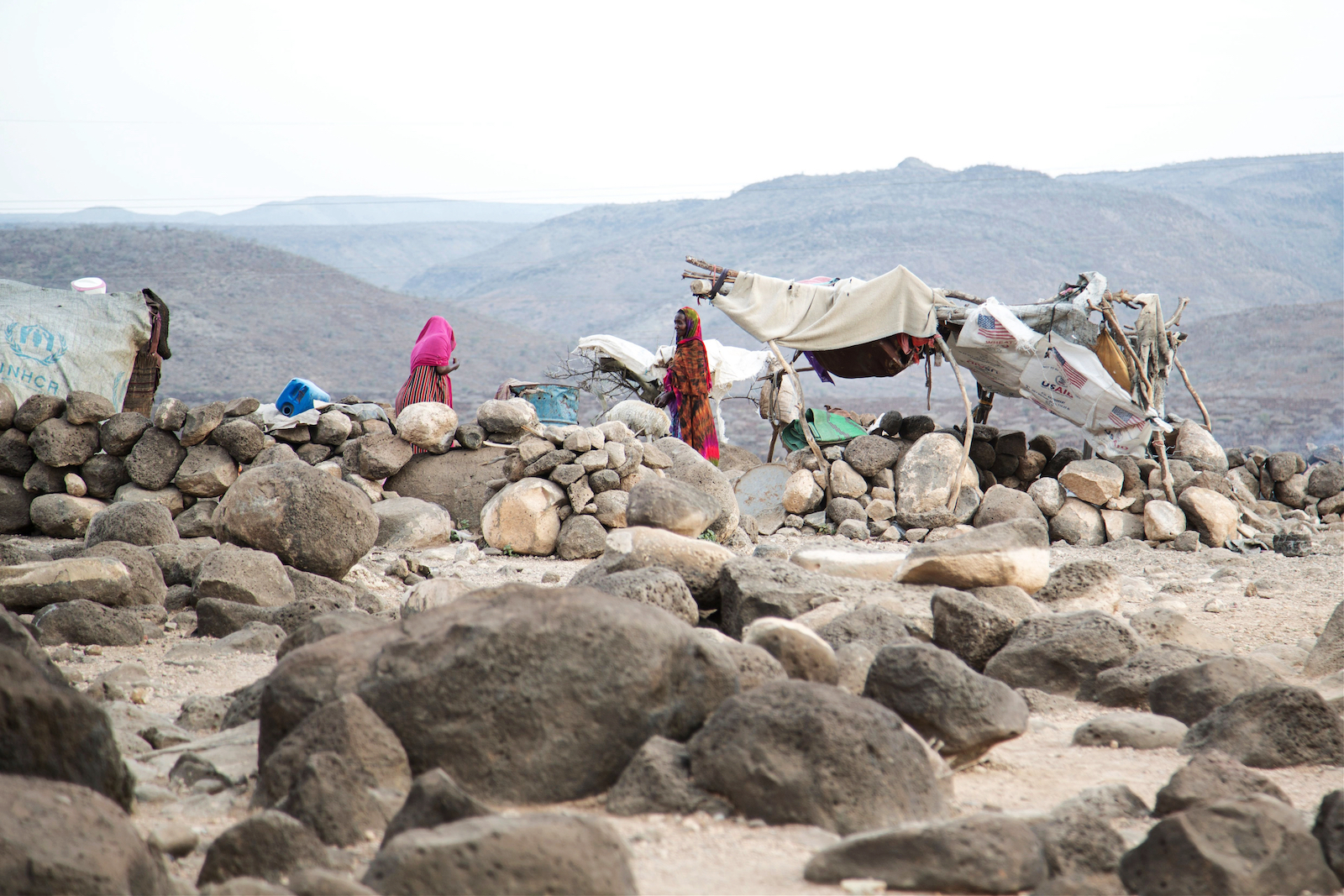
Djibouti Should Not Face the Burden of its Humanitarian Crisis Alone
Slightly smaller in land mass than New Hampshire, the country of Djibouti has a population of nearly one million people and a fifty percent unemployment rate. Despite the hardships it faces, the nation has a bright future. Located on the Gulf of Aden where the Red Sea connects to the Indian Ocean, Djibouti has the only deep-water port in the Horn of Africa. Long-term efforts are underway to construct modern rail systems and road networks into the continent’s heartland. Instead of just being a port for servicing ships traveling to and from the Suez Canal, Djibouti is poised to become a major transportation hub. Some believe it could become the Rotterdam of East Africa.
Foreign military bases in Djibouti include the United States, the United Kingdom, Germany, Spain, Japan, and China. Security that comes with having so many international forces on its soil largely eliminates Djibouti’s concern about invasions by the militaries of its unstable neighbors.
Unfortunately, both for the country of Djibouti and the people involved, never-ending problems from proximate countries are an ongoing concern. Government anarchy, regional conflicts, an increasingly arid climate, unemployment, and poverty are sending thousands of refugees across Djibouti’s borders every day. To its northwest is Eritrea with six million people. To the west is Ethiopia with 112 million. To the southeast are fifteen million Somalis braving the cruelties of a never-ending civil war.
Many Ethiopian migrants hope to secure transport across the Gulf of Aden to Yemen. There can be no greater testimony to the horrors these individuals have suffered in their own countries than that they are seeking refuge in a country that is itself home to a proxy war between Saudi Arabia and Iran. The boats used to transport migrants across the Gulf of Aden are barely seaworthy for shallow-water fishing. Once in Yemen, and recognizing their situation has not improved, many migrants attempt to cross the Gulf back to Djibouti.
Last year, the quest for a better life resulted in 150,000 migrants traversing Djibouti’s northern desert by foot. Tracking numbers on the western and southern deserts are equally significant. In October alone, Djibouti recorded 22,709 migratory movements in the northern sector. All along their migration routes, the refugees are subjected to victimization by slave traders and criminals. Reports of murders and rapes received by Djibouti authorities are just a fraction of the total occurrences.
The government of Djibouti is simultaneously implementing a three-part strategy: internal efforts to care for the migrants, bringing stability to neighboring nations, and reaching out for international assistance. Djiboutian law enforcement and migration agencies have been empowered to investigate the victimization endured by newly arrived migrants.
In 2018, the Djibouti Declaration was implemented to allow for educational support to the migrants. The intent and determination of the Djibouti people to do the right thing has nevertheless been constrained by a severe lack of funding, including the absence of buildings for schools, and the unavailability of study materials.
To stabilize Sudan, in coordination with the African Union, Ismail Omar Guelleh, Djibouti’s president, hosted a summit with various heads of state and regional governments. His goal remains to bring an end to the conflict between the Sudanese military and the Rapid Support Forces (RSF).
In a face-to-face meeting during the summit, Abdel Fattah al-Burhan, the de facto ruler of Sudan, and the head of the Rapid Support Forces, Mohamed Hamdan Dagalo, also referred to as Hemetti, agreed to an unconditional cease-fire. This was no small achievement and is a critical step toward regional stability. It proves Djibouti is striving to address the root cause of regional problems, not just the results. Armies and militias fight battles, but it is the civilians who suffer the consequences.
Having launched a National Strategy for Migration, Djibouti is receiving support from the International Organization for Migration (IOM). The European Union has provided funding assistance for IOM’s in-country work. The United Nations Office on Drugs and Crime (UNODC) is working with Djibouti’s law enforcement agencies and court system to aid in training, information sharing, and evidence gathering.
As evidenced by the increasing numbers, the migrant problem is getting worse. The efforts of the Djibouti government, with current support from the European Union and the United Nations, remain insufficient to meet the challenges the country faces. The U.S. State Department has publicly commended President Guelleh on his successful work to suspend the war in Sudan. But Djibouti needs more than rhetorical support from the United States.
Djibouti recognizes that people cannot be condemned for trying to find a better life and a more secure place to raise their families. The government realizes that turning people away means sending them back to the environments they are trying to escape.
But as a developing country of one million people that continues to face enormous development challenges, Djibouti cannot be expected to shoulder the entire burden of migrants coming from its neighbors, with a combined population of 133 million.
Djibouti is demonstrating the right way to deal with a humanitarian crisis. Now the world needs to step forward and provide the necessary assistance to allow Djibouti’s intent to become its long-term reality.
